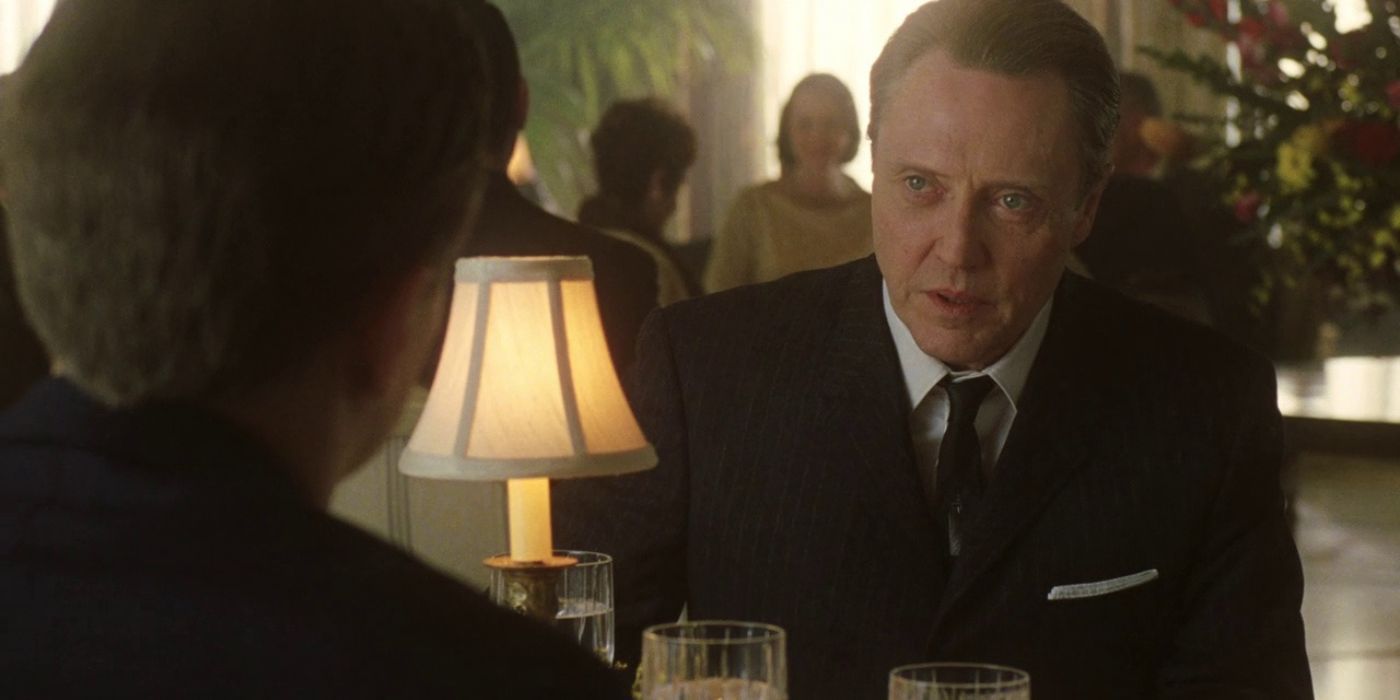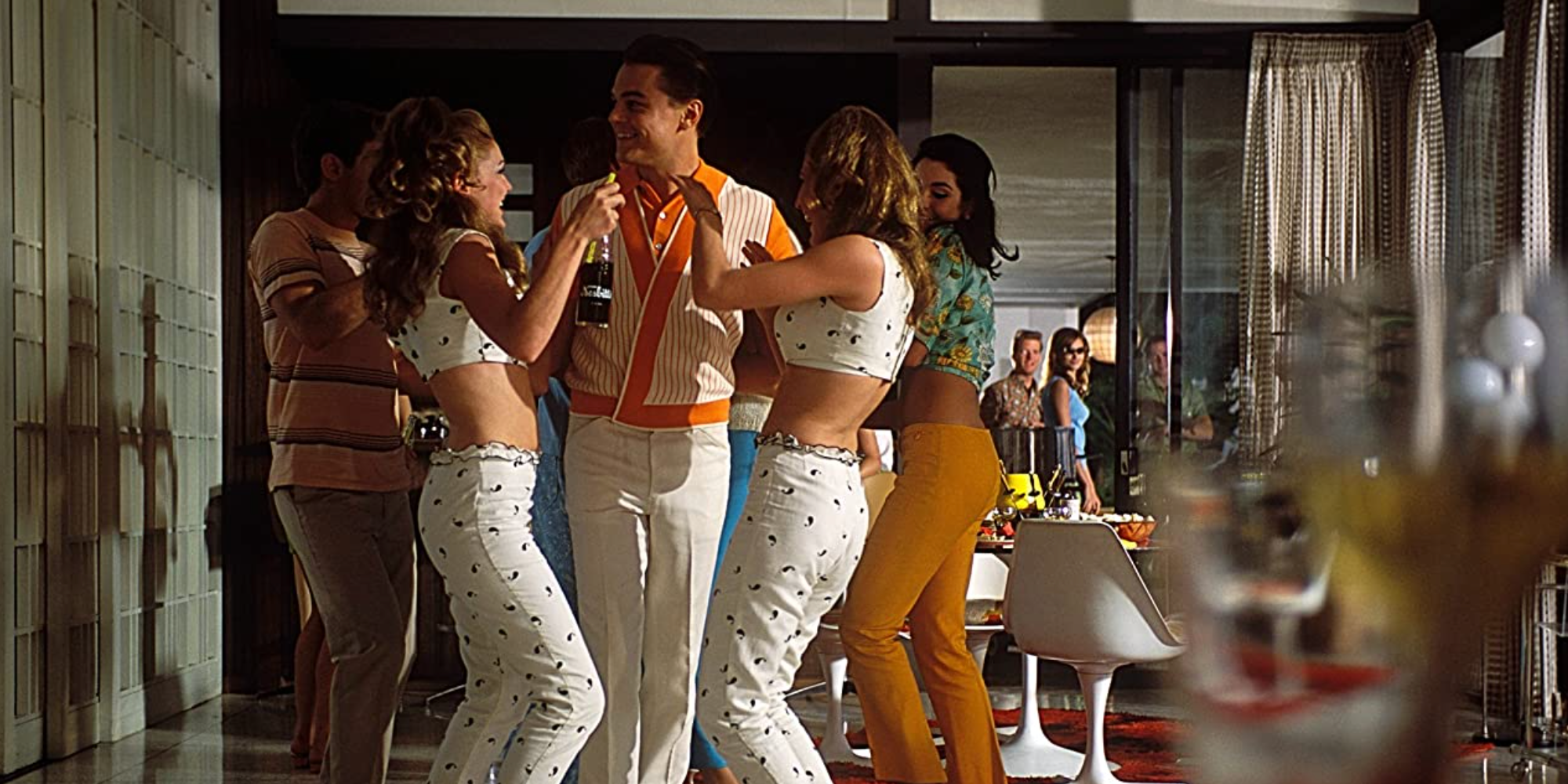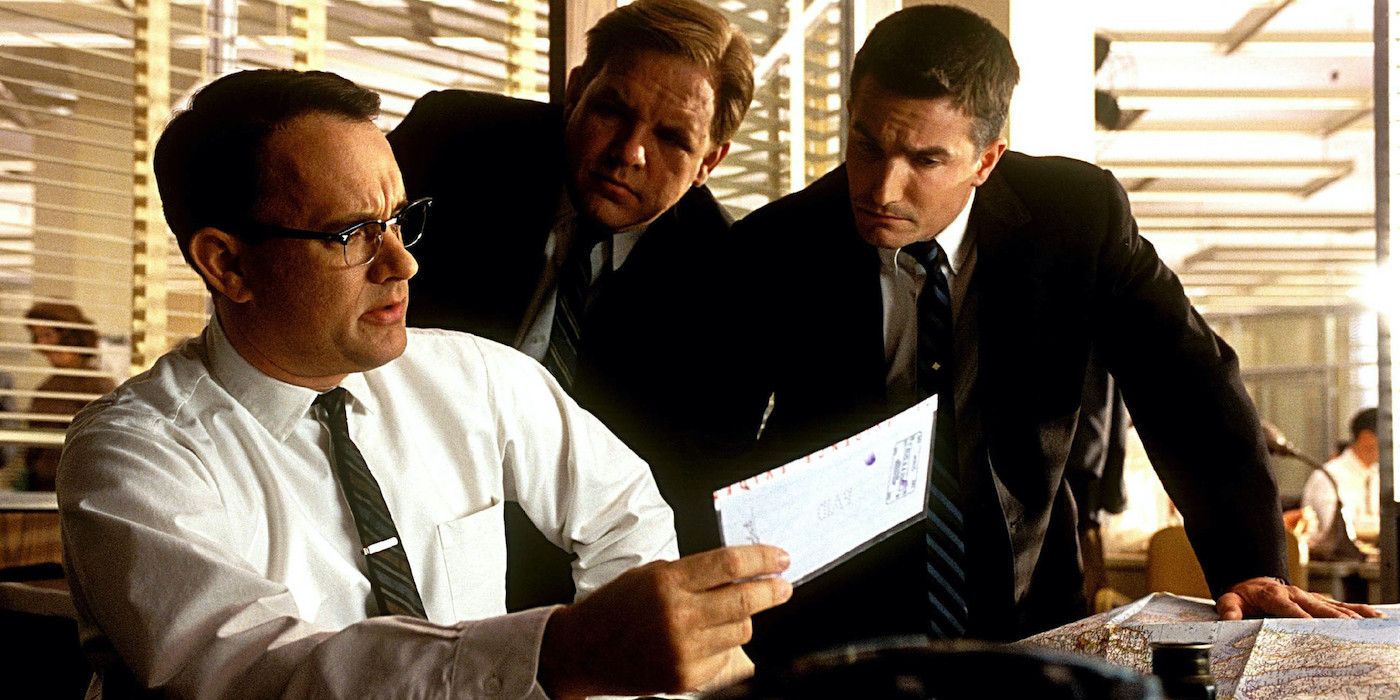'Catch Me if You Can': True Story of Frank Abignale Jr. Explained
Stephen Spielberg and Jeff Nathanson's Catch Me if You Can has been so positively received since its 2002 release that Roger Ebert was once quoted as stating that "It's not a major Spielberg film, although it is an effortlessly watchable one" and it's hard to disagree. Although it may not be the first work of Sir Stephen's you think of, it has become a cult hit that captivates the audience through its lighthearted notes of comedy, drama, and romance. Since its release just over 20 years ago, the movie has garnered many awards and other nominations for its portrayal of Frank William Abagnale Jr. (Leonardo DiCaprio) and his fantastic journey across the globe as he's pursued by FBI Agent Carl Hanratty (Tom Hanks).
With that said, it's reasonable for fans of the movie to wonder just how much of it is factual. As the general narrative of the movie and its real-life subject goes, by the time Frank was the same age as the movie is at the time of this article, he'd forged his way onto the payroll of a major airline, lied into a profession as both a doctor and lawyer, escaped across seas and was locked away in a foreign prison - or so we're led to believe. Frank Abagnale is known to be a bit of an embellisher and there's no shortage of journalists willing to accept the challenge of fact-checking any of his claims. Before we get too ahead of ourselves, let's rewind back to the start of his story -- or at least what it's believed to be -- and see if we can catch up with Frank.
What Happens in 'Catch Me If You Can'?
The Nathanson screenplay is based on the book of the same name which was written by Stan Redding with input from Frank William Abignale Jr. The story is set in the 1960s as the audience follows Frank after his mother, Paula (Nathalie Baye), and father, Frank Sr. (Christopher Walken), divorce in his teenage years due to the aftermath of Frank Sr.'s cons and tax fraud, which his son witnessed and took part in. The emotional toll of this life event impacts the junior Frank so profoundly that he runs away at the age of 16 with a mere $25 to his name gifted to him by his father. After depleting his money between the ages of 17 and 20, Frank Jr. forges his way into several well-paid careers. Using what he learned from the senior Abagnale's exploits as well as anything he could pull from movies and television shows, he, most notably, faked his way into being an emergency ward pediatrician, a lawyer, and an airline pilot. Frank does this while constantly touching base with his father and with the hopes that resolving his family's financial woes will reunite his parents.
Although Frank does find some success in these professions, his crimes aren't without punishment. He's constantly on the run from the FBI which eventually ends with him being imprisoned; his parents never get back together and his father dies tragically offscreen. What makes the latter even worse is that Frank only learns about this through being apprehended by Carl, who regrettably breaks the news. This leads to Frank having another emotional breakdown and escaping federal custody via the plane's toilet duct in a desperate search for his mother. After learning that she's long since moved on and happily married with a daughter, Frank surrenders back over to the FBI at the scene of his mother's new home. At the end of the movie, Frank William Abignale Jr. is given a 12-year sentence in a maximum prison, which he serves some remainder of working at the Bureau's Financial Crimes branch under Carl's watchful eye.
Frank Abagnale Jr.'s History Vs. the Movie
When it comes to the truth behind the movie, Frank, himself has stated that the film is about 80% accurate. According to him and a mixture of other sources, while most of the key points of his upbringing were true, there were some natural changes: Frank was one of four children, and while his parents' splitting was true, he lived with his father afterward for the majority of his childhood. He began his cons as a teenager and started by swiping his dad's credit card which he charged over $3,400. After running away, he never saw Frank Sr. again. As for his mother, Frank will tell you that she never remarried and while being pursued by the FBI on the aircraft, he escaped through the service doors where the food and beverages were brought onto the plane, not the toilet. Speaking of the FBI, Carl Hanratty is actually a composite of several agents who were assigned Frank's case, the main one being Joe Shea. Joe has since passed on but didn't want his name used in the movie when he was alive. Therefore, much to the disappointment of fans like myself, Agent Carl Hanratty was created for the story.
To be clear, while Frank Abagnale Jr. had input when it came to Redding's work, he wasn't heavily involved in the movie's screenplay. As a matter of fact, as much as Frank hoped it'd be a hit and would teach viewers "an important message about family, childhood, and divorce," he'll admit that he's only watched the movie twice as of 2017. He does, however, maintain that Spielberg is the director best suited to tell his story given what he'd experienced in such a short and impactful time of his life.
Are Frank Abagnale Jr.'s Stories True?
As compelling and, in some ways, believable for its time as Frank's story is, its validity is certainly up for discussion. Since Frank began making rounds telling his story and appeared on To Tell the Truth in 1977, journalists have repeatedly done their due diligence in fact-checking him. This will even find its way back to headlines to this day as a recent expose was published by Alan C. Logan. His research, which was originally intended to focus on Frank, tells a different story than either the subject or Hollywood has led us to believe. According to the meticulous research of Logan and other sources, much of Frank's history has been fabricated. Although he claims that no one was harmed, he did manage to steal from the family of a flight attendant named Paula Parks, whom he was infatuated with, and he only posed as a PanAm airline pilot for a few months, forging his way into cashing in 10 checks totaling $1,500.
Furthermore, the only prison records in relation to him were from his home state of New York and Louisiana, where he was never employed by the Attorney General as he claims, and a short stint in a French prison. As the majority of Frank Jr.'s purported criminal escapades took place during the time he was imprisoned domestically, it takes some of the wind from the sails of his claims when you consider the incredible difficulty in planning and committing the kind of fraud he says he did when he was supposed to be incarcerated. Anyone in need of further proof can follow Alan Logan's direction, as this writer did, and refer to a Talks at Google segment from November 2017 with Frank William Abagnale Jr. once again in the spotlight. In the talk, Frank is speaking about his son wanting to become an FBI agent and nonchalantly claims to be in the agency's centennial celebration coffee table book, which anyone can peruse via the FBI's official site and see an absence of Abagnale and one of many holes in his story.
Adding to this, Google went so far as to precede that same talk with a disclaimer about the validity of anything stated within it, and that it's only kept for historical purposes. Logan's research by way of public records and archival news clippings may disprove much of what Frank has said over time, but anyone upset by this could simply just exchange this information as evidence of his continued fraudulence.
The story of Frank William Abagnale Jr. may very well be history's greatest con ever pulled by a man in pursuit of the biggest fish he can catch. Although his story has been challenged and mostly disproved, his fame seems to be unstoppable. Johnny Carson would repeatedly invite Frank onto The Tonight Show while he was simultaneously being proven as a hack and his name a household one that is, dare I say, respected and admired by those who know it. Whether any part of Frank's story ends up being truth or fiction, it's certainly made for a timeless and entertaining story.
View the rest of the story here


Comments
Post a Comment